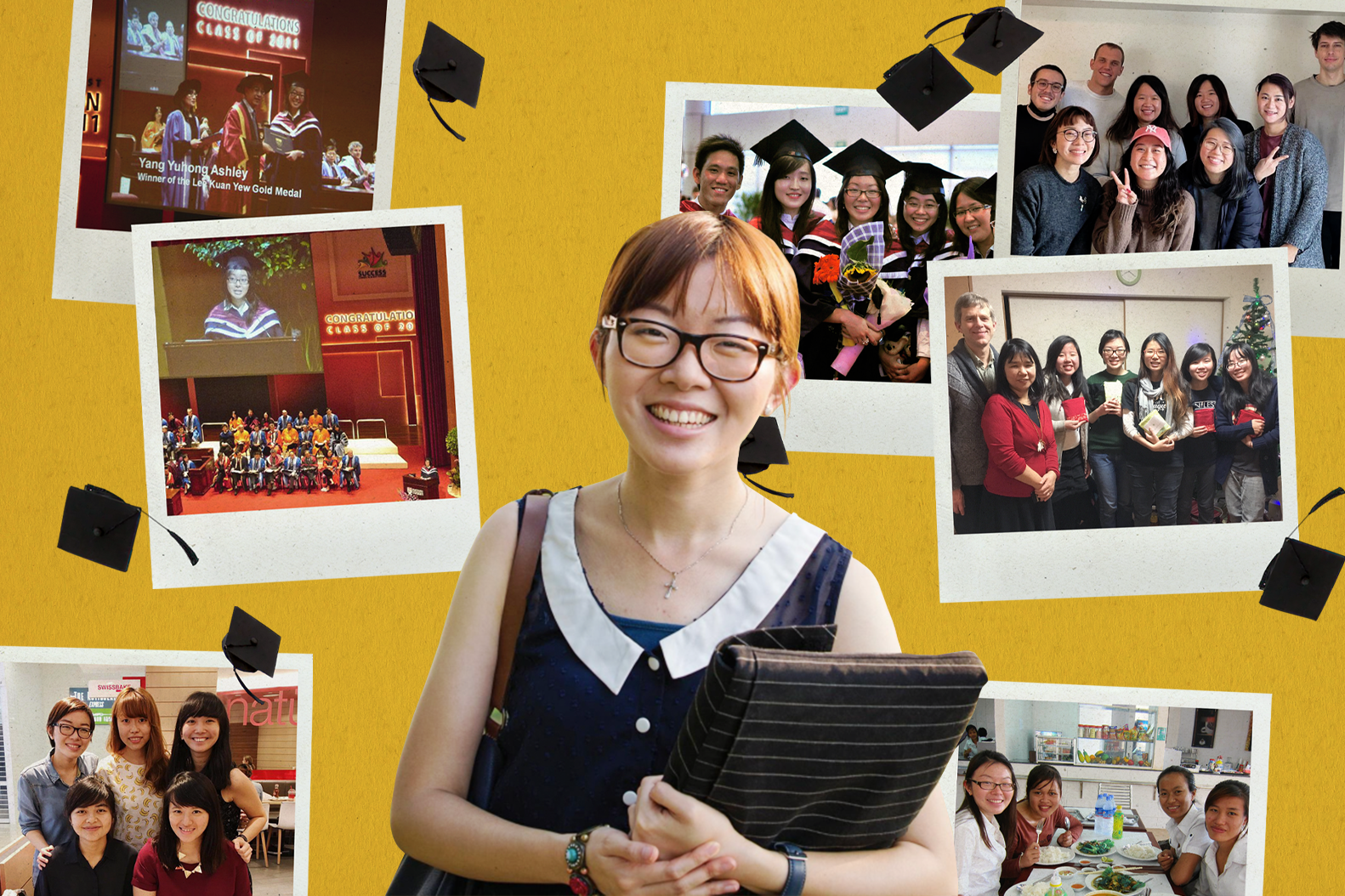Before I came into university, I was still a very young Christian.
I accepted Christ when I was six or seven years old, but it was only when I was 17 that God started placing a desire within me to really know Him.
While I had heard a little bit about Cru after entering university, I didn’t know what they did at all.
At that time, I felt evangelism was reserved for the very extroverted and very holy people — I didn’t know anything about the biblical basis for evangelism.
So when I heard it had to do with evangelism, I was very sure I was not going to join because I felt it wasn’t for me.
But in my second semester of university, my friend invited me to her discipleship group.
I learnt how to share my faith, taking small steps.
Because the group wasn’t so big, I thought it sounded good and not too intimidating for an introvert like me.
There I met a wonderful discipler, Janice, who is a year older than me. She was just so welcoming.
I never really had anyone disciple me like that before — the care and attention she gave made me feel very loved.
When we met up weekly as a group, I also felt like the other girls were very excited to learn about the Word.
Before, I had always thought that the Bible was very dry and difficult to read, so I was encouraged by these girls who also wanted to learn how to read the Bible.
It excited me. And then I learnt how to share my faith, taking small steps.
The 2 trips that changed me
It was when I went on exchange to Canada and joined the Canadian chapter of Cru there called Power to Change that I grew a lot in the area of evangelism.
It actually felt a bit like a three- or four-month mission trip!
I used to see evangelism as more of a programme, but my eyes were opened when I saw how the Canadian students invited non-believers to their homes and shared their lives with these friends.
I learnt that evangelism is a lifestyle.
Towards the end of exchange, I was even talking to a local Cru staff there about “handing over” the contacts of friends I had been reaching out to.
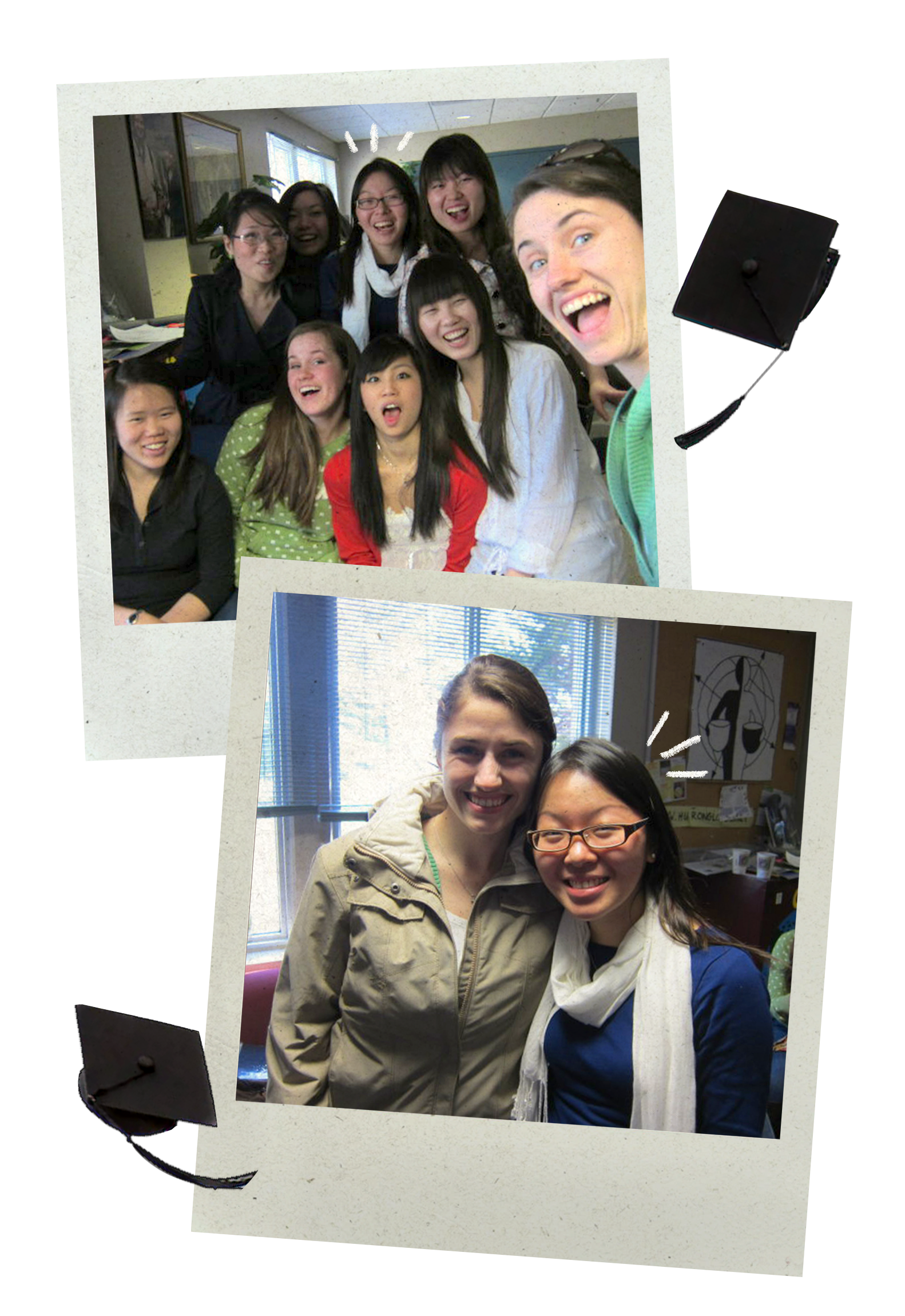
One day, the staff asked me if I thought I might have the gift of evangelism. I told her “no” — I had done the spiritual gifts inventory and evangelism was not one of them.
But she said that the amount of opportunities I had been given might be an indication of a gift.
And then she asked me, have you ever thought of joining staff?
No, no, no, no. I had never thought of joining staff.
In my mind, I thought this would be for those who were super “spiritually mature”.
Full-time ministry was not on my radar. In fact, I had wanted to go into graduate school since I was getting a lot of joy out of doing things like research.
It was only later that I realised that this was when God started planting a little bit of that burden in my heart to serve Him full-time.
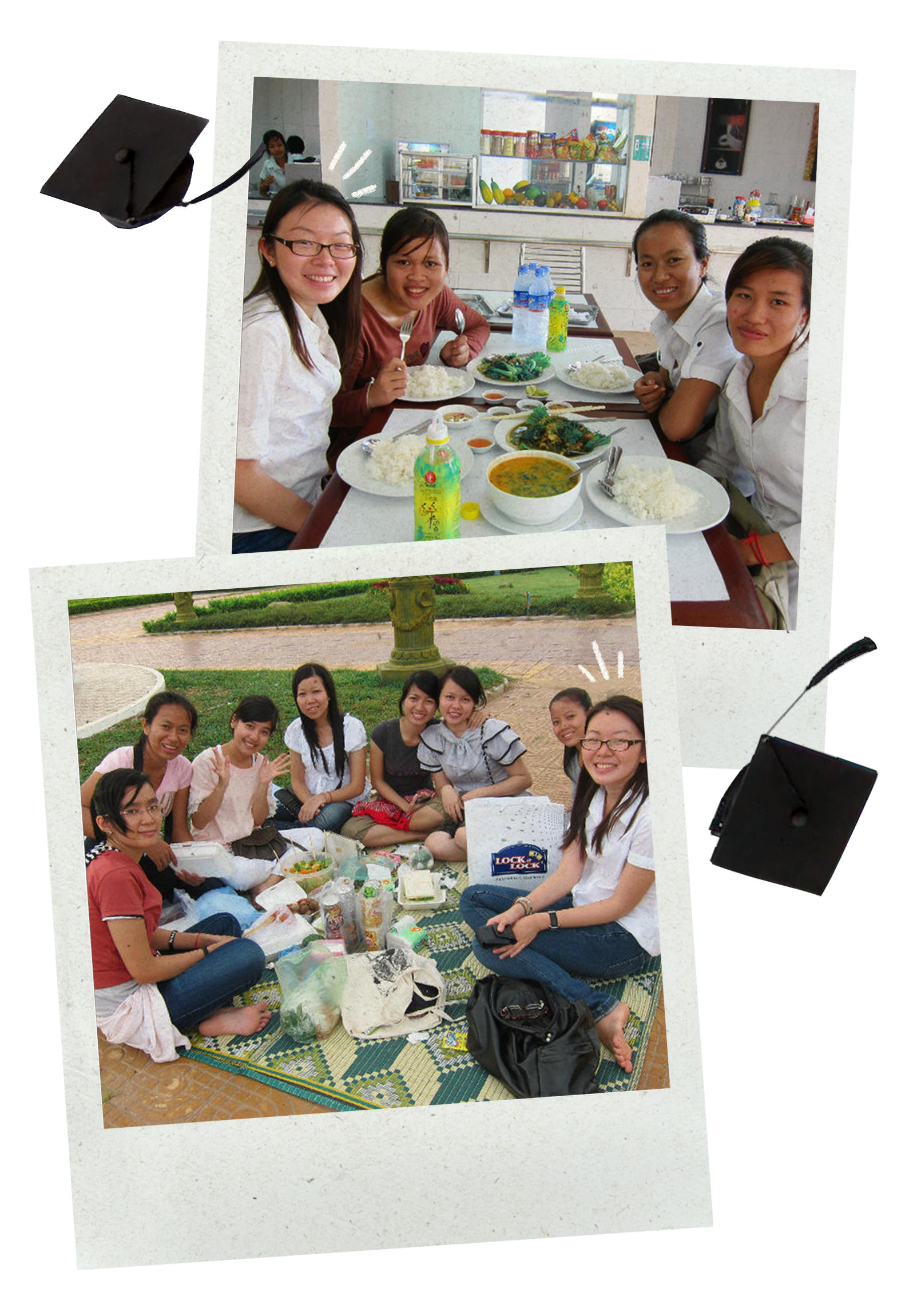
That same year, I went on my first mission trip to Cambodia, partnering Cru in Cambodia.
Even though that trip was very tough for me, a staff there also challenged me to consider joining Cru full-time.
I thought it was a strange and odd coincidence that it happened again, but I said “no”.
However, when I came back from Cambodia, I really felt like God was starting to move.
My two experiences abroad had changed my heart, such that when a Cru Singapore staff asked me at the start of my final year if I had ever thought of joining staff — the third time this question had surfaced — I was no longer turning away from it like I was the first time.
I was not opposed to it. It excited me a little, but I was very, very scared.
Counting the cost
I had been quite set on wanting to do Master’s and had told my parents about that. My dad was excited for me that I wanted to go to graduate school.
So I wondered what my parents would think if I told them going full-time was where God was leading me. I was very afraid I would disappoint them.
My dad wasn’t a Christian, so I thought it would be really difficult to explain the change.
I was also doing a lot better in university than I was in junior college (JC).
Given my A-Level results, it was a humbling reminder that it wasn’t always this way for me academically.
I knew my good grades in university was something that God had graciously given me.
It wasn’t just these grades — I had this valedictorian label in my faculty as well.
I felt quite scared because I knew that going full-time was going to be seen as an unconventional idea by a lot of people.
In the last semester of my university, I was also a candidate for getting an award.
At the award interview, I was supposed to prepare a presentation and share what I had done during my time in NTU.
I didn’t realise this interview was going to be quite so important. When I went for the interview, the deans from every faculty formed the entire panel — nine of them.
I had never done anything like that before and was feeling very nervous.
After the presentation, they asked me: “You’ve been doing quite a lot of research, you’ve had quite a number of research opportunities. Do you think you would pursue a career in research after you graduate?”
I really thank God that because I prepared, I had an answer ready. I shared that in my whole time at NTU, I was really blessed by God.
As such, I wanted to use my one year after graduation to serve Him in full-time Christian ministry, and that meant I would not be doing research.
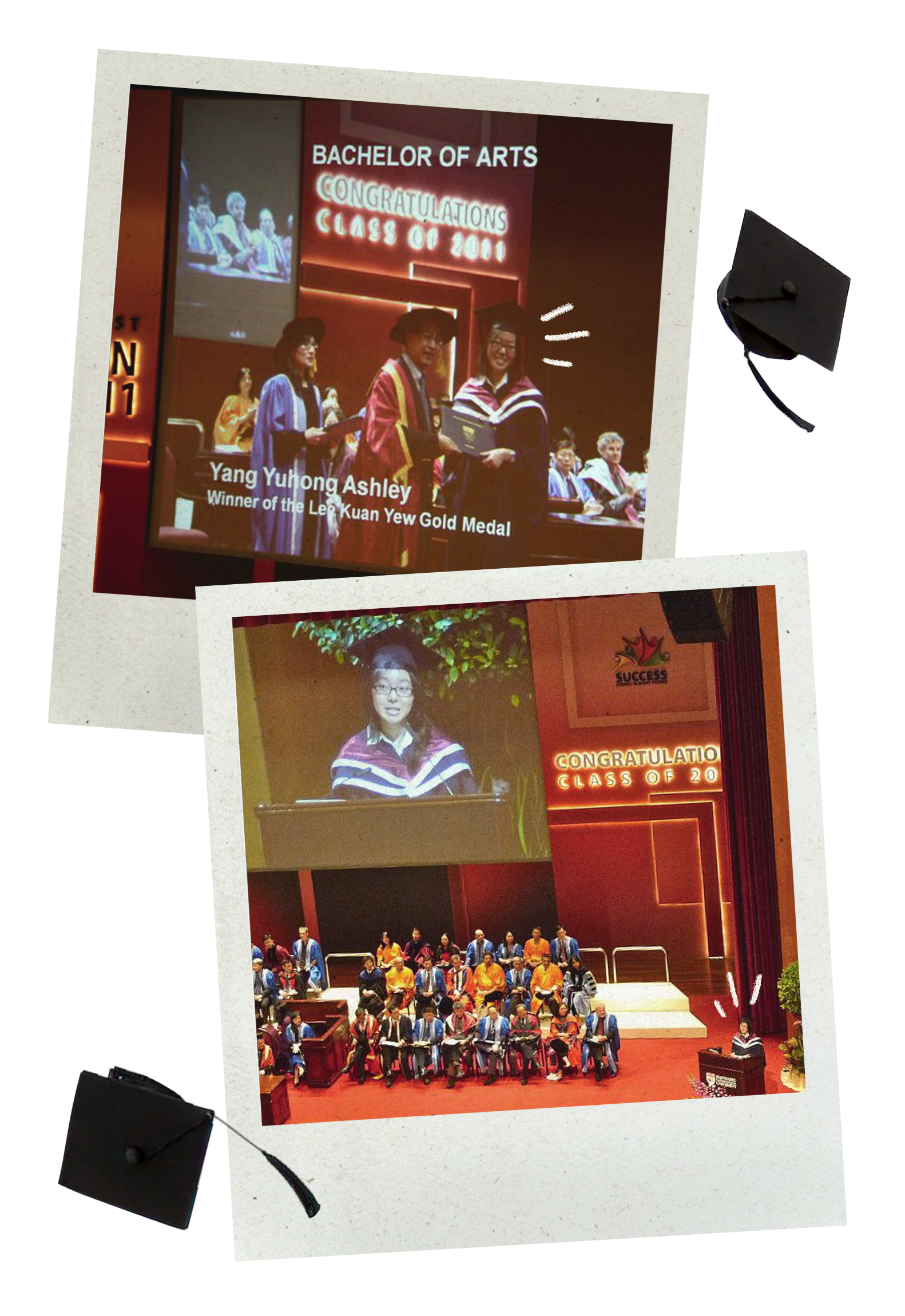
After I said it, I felt the atmosphere change in the room. Nobody said anything. Subsequently, the questions felt more challenging.
And I cried after I left that interview.
I told God again: “Why does it have to be so hard? I’ve already made this choice, why do I need to be in this position where I’m being asked these things?”
I even had friends telling me how it would be better to get a “proper” job after I graduate.
But as I look back, I see that God was helping me to have more clarity on my calling.
In spite of all the comments and challenges I faced, the burden never went away. I was still very sure every time I prayed about it.
At the time, I was also very encouraged by the stories of Jim Elliot and Steve Douglass (Cru’s president emeritus) because of how well they did academically before going into full-time ministry.
Steve Douglass was in the top 2% of his master’s programme at MIT, and his story of him telling everyone at graduation what he was going to do next was interestingly quite similar.
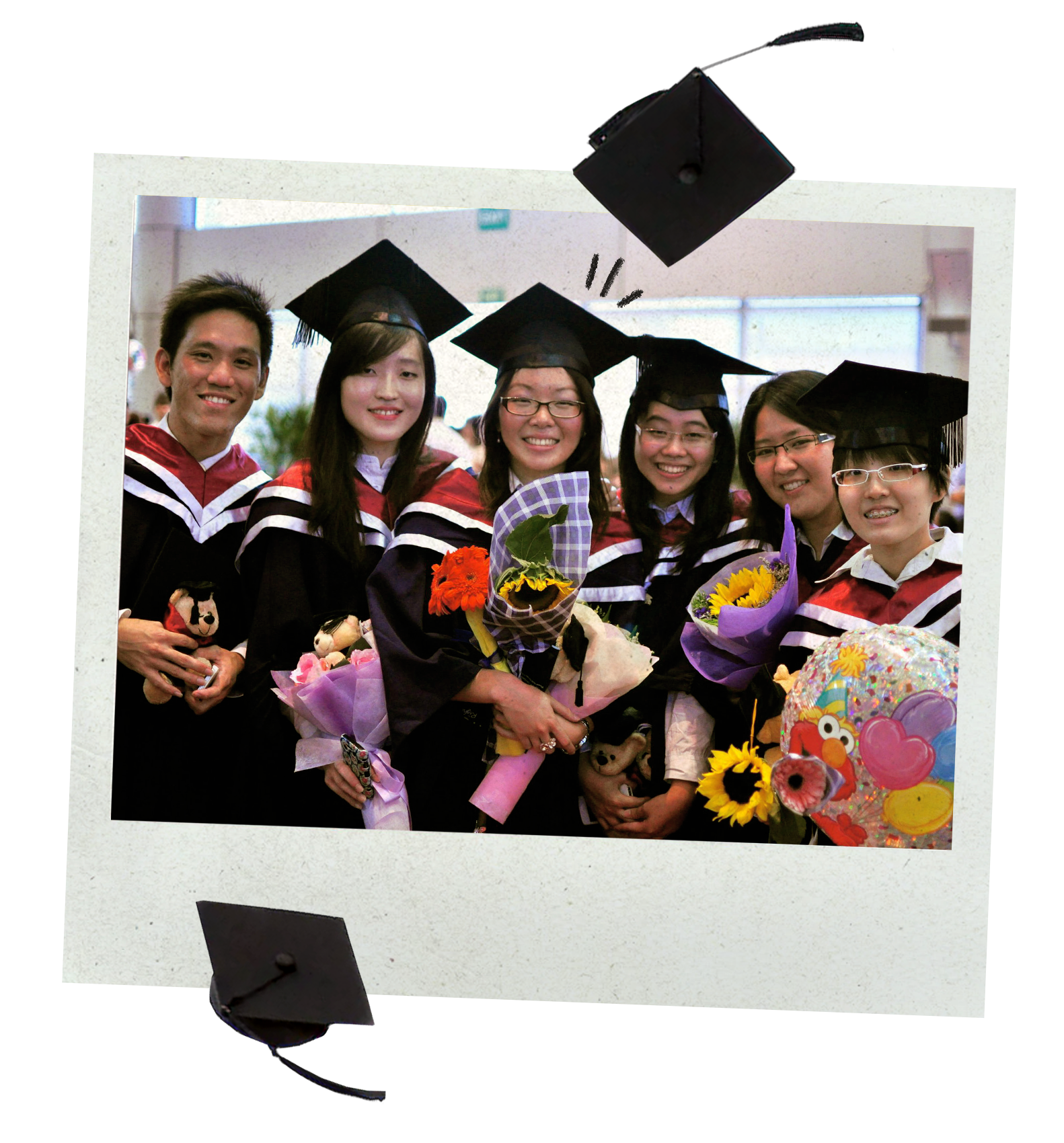
Then when I attended the GoForth conference in my final year, I realised that the sense of gratification I had from putting together a research paper or helping professors simply couldn’t compare to the joy I experienced when serving God.
When I came out of that conference, I really felt that sense of peace that this really was where God was leading me and I decided to join Cru full-time.
God also really ministered to me when I felt especially alone and when I had to share my decision with my parents.
Through 2 Timothy 4:16-18, He assured me that this was His plan for me.
My sickness came as a bombshell
During the period of my staff training when I had just joined Cru full-time, however, I had this bout of gastric flu.
Then some time later, I started getting all these weird aches and pains all over my body.
I was just very, very fatigued because it was persisting for quite long.
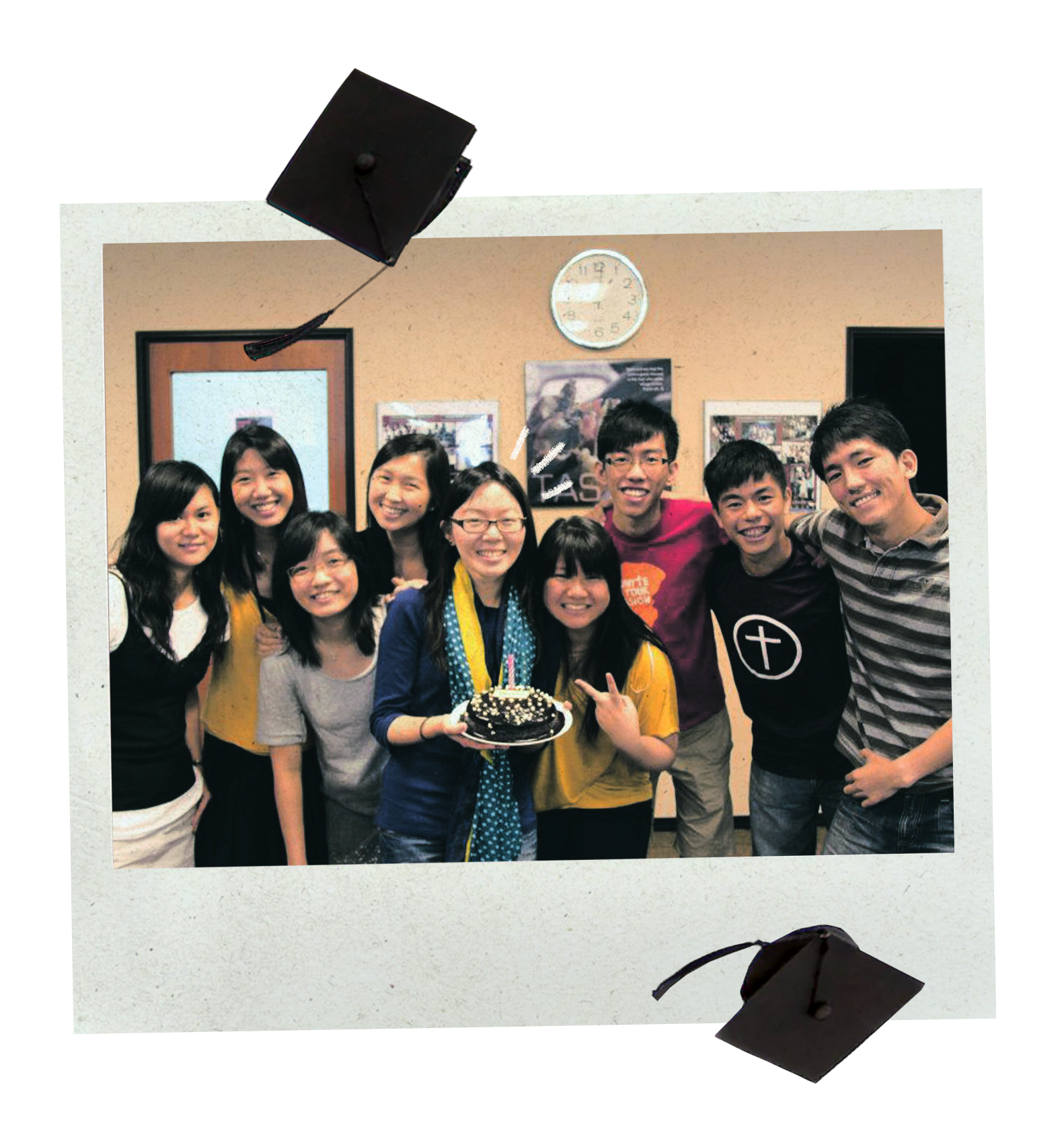
My staff team encouraged me to go to the doctor, and the results of the tests showed I had a mycoplasma infection. I also tested positive for autoimmunity.
For a mycoplasma infection, you will essentially have flu-like symptoms, but once you finish a course of antibiotics, you should be well.
But as for the autoimmunity, my doctor told me it was better to see a specialist to get more blood tests done — and that there was possibly no cure for it.
I was doing blood tests every week and there were still no answers. The symptoms kept persisting, so I felt really very lost.
“I’m serving You, how come I’m having all these symptoms that I don’t understand?”
During that time, I was also missing a lot of my training sessions as a new staff.
I asked God: “I’m serving You, how come I’m having all these symptoms that I don’t understand?”
It really scared me because I was only 24, fresh out of university and at the prime of my life.
Diagnosed with cancer at a young age, she discovered the love of God through kindness and open doors
It made me think: What am I going to do in my life? What am I going to do for my work if this is going to happen to me every day?
Long story short, the other symptoms lasted for about six months. I thought I was clear of it, and that I didn’t have it anymore.
But it turns out it was a one-year remission. It started flaring up again a year later.
I started doing all those tests again — and I was back to feeling fear and confusion.
It was only in 2017 that I learnt that my condition is called fibromyalgia, a chronic pain disorder which can be set off by a viral infection.
Living with fibromyalgia
Today, I still have fibromyalgia and some level of autoimmunity. I still wake up daily with fatigue, aching all over when I first wake up.
The symptoms are the worst in the morning and become gradually more manageable on a “good” day.
It’s hard to remember when I last had a good night’s rest (unrefreshed sleep is one of the symptoms), and the pain tends to be all over the body.
But I’ve learned how to manage it a lot more.
After I got my diagnosis, my doctor got me to see occupational therapists who taught me to manage my symptoms a lot better.
I have to be very mindful of my pace of work and lifestyle. I also have to be careful in trying not to fall sick.
Earlier on in my job, I was struggling with responsibilities having to fall on my other colleagues because I wasn’t able to manage my full role.
But I’m really thankful because my campus director suggested to me then I could focus on coaching new staff since it’s less intense and might be a better fit for me.
I’m also very thankful for the friendships that I’ve had on staff, as well as the support and care that I’ve had from my leaders in Cru.
Not a time to be sent but a time to send
One thing that I’ve always been excited about a lot is sending.
When I came into Cru, I felt quite clearly that eventually God would send me for cross-cultural missions.
I was really praying and asking God: “When’s the time?”
But He showed me that this early period as a young staff was when He would prepare me for the mission field.
It also wasn’t a time to be sent but a time to send. That meant building people up and encouraging them to also go.
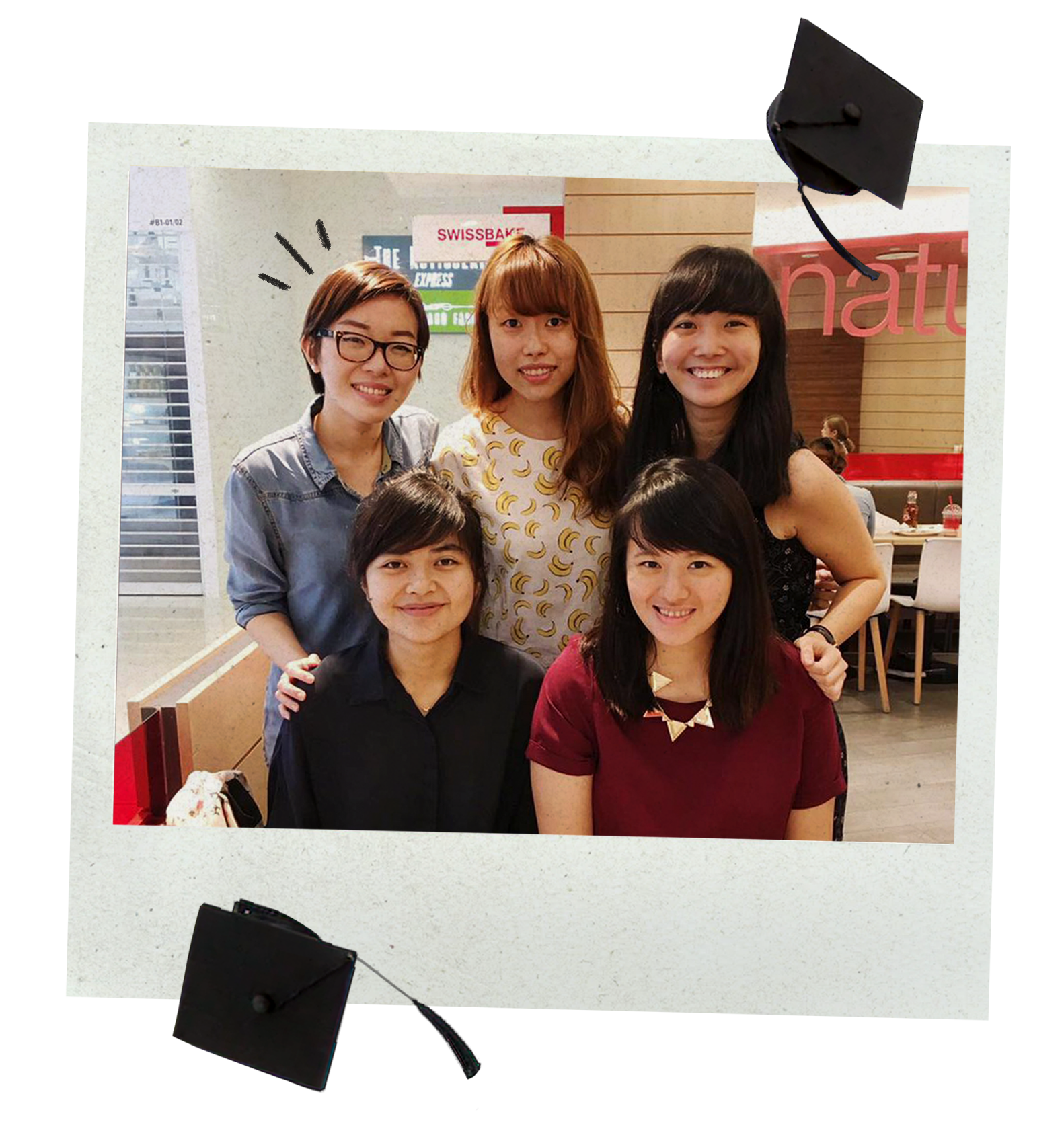
As a doer and someone who likes to get things done, being told by God that now’s not the time and to go at it slowly was a struggle for me.
Nevertheless, it was always exciting when God put someone on my path who is also called to serve him full-time in the harvest field.
God is so good, allowing me to cross paths with students who feel like they have that calling.
I really enjoyed doing ministry with my students. I was most excited when I got to bring them on mission trips — these were always the highlight of my year.
I was also excited when my Cru students introduced their non-Christian friends to me and when we had opportunities to reach out to them together.
Serving God in Japan
Ever since I graduated, I’ve been in campus ministry.
I served seven years in NTU Cru before focusing on helping to coach new Cru staff. I also later helped to pioneer movements for campuses that don’t have an existing Cru ministry.
And from November 2020 to April this year, I served with Cru in Japan, doing a lot of evangelism on campus.
I was based in Tokyo, working with Japanese students in the ministry there that was in its pioneering stage.
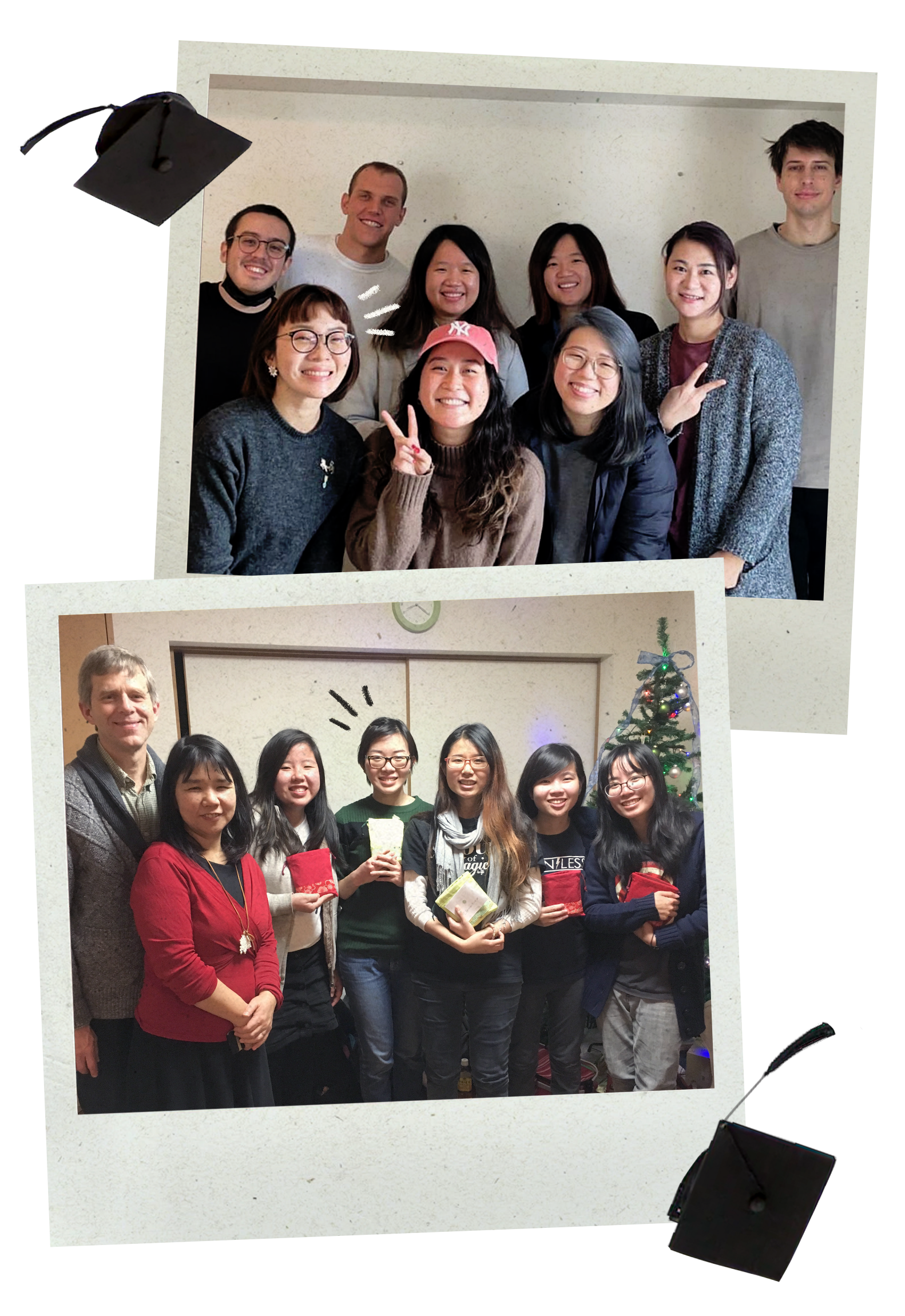
I had always been quite clear that God would eventually lead me to go on missions, but I wasn’t sure where. I never thought it would be Japan, so that really surprised me.
I was actually quite ignorant about the spiritual climate of Japan, until I went on two mission trips there in 2016.
I saw how it was not easy sharing the gospel. The ground is hard and the labourers are few.
It was really only after being more exposed to unreached people groups and the spiritual climate in Japan when God began to use all these things to open up my heart.
Looking to the future
I’ve just finished serving 11 years on staff. Cru was such an integral part of my life in university.
It was really a time when I experienced exponential growth spiritually, so I wanted to do the same for other students as well.
I’m just thankful to play a small part in a student’s life.
When graduating students share how God used Cru in their university journey to help them know how to share the gospel, have more of His vision for the global harvest and build a spiritual foundation for their walk with God, that’s something that I’m always thankful for.
Being able to witness students take faith steps and see God’s goodness in their lives — that’s something that’s very exciting.
As for my dreams for the future, I would definitely like to be back serving God in Japan.
I left, feeling like there was still a lot more to be done. If that’s possible, I pray for that to happen in His will and timing.
This story is part of a special series produced in collaboration with Cru Singapore, which is celebrating 50 years of God’s grace in disciple making.
Did you know that there are still approximately 7,400 ethnic people groups that are considered unreached?
If you’d like to journey with Cru Singapore to reach boldly, build deeply and send urgently, visit the Cru Singapore website to explore the opportunities. You can also follow them on Instagram and Facebook.
- What does evangelism mean to you?
- What’s the big plan for your life? In terms of rough percentages, how much does God or the Great Commission factor into your plan?
- What is one thing you must do to begin aligning your life to God’s will?


